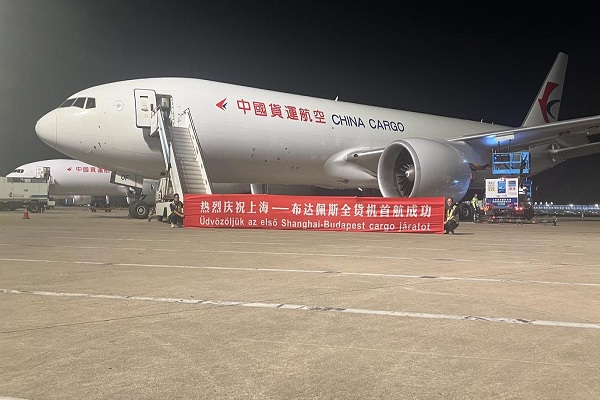100 FAQs about Shanghai's 28 Policy Measures
11. Our company is a logistics company and we shipped a batch of key prevention and control supplies to the hard-hit area by emergency request from our client. Is there tax incentives for income generated from this deal?
A: Starting from January 1st, income generated from shipping key prevention and control supplies will be exempted from VAT levy. The scope of key supplies is defined by the NDRC and MIIT.
12. Our company produces protective clothing for medical use. During the epidemic, our company was requisitioned and we organized our staff to resume production and to work overtime to produce protective clothing, for which the government will offering subsidies. Should we pay VAT for this fiscal subsidy?
A: No! If the subsidy has no link to sales income or volume, it can not be accounted for as taxable income and therefore is free of VAT levy.
13. Our company produces protective clothing for medical use. To fight the epidemic and answer to the call of the government, our company made a new purchase of production equipment that worth RMB 6 million to expand capacity. Is there any pre-tax deduction policy for this expenditure?
A: For companies producing key supplies for epidemic prevention and control, expenses on new purchase of equipment for capacity expansion can be accounted for as one-off deductible in income tax calculation for the month. Companies with Notice on Emergency Requisition of Capacity issued by Shanghai Municipal Commission of Economy and Informatization are the eligible ones for this policy.
14. Will there be fiscally subsidized interest rate for companies offering products and services for the COVID 19 prevention and control. What are the requirements and how to apply?
There are five categories of businesses are eligible for the loans by financial institutions through POBC's Special Refinancing Policy: companies producing key prevention and control supplies such as medical protective clothing, effective masks for civil and medical use, goggles for medical use, novel coronavirus detection kit, negative pressure ambulance, disinfection equipment, infrared thermometer, intelligent monitoring and detection system as well as relevant drugs; Upstream companies that produce raw materials, supplementary materials and equipment for the aforementioned supplies; Key companies producing daily necessities; Key companies that store medical supplies; companies providing IT equipment and service systems for fight against the epidemic as well as companies selling and transporting the aforementioned supplies.
A national list and a Shanghai list for businesses fall into the aforementioned categories can be referred to for the arrangement. Central Government-owned Enterprises can petition to the NDRC and MIIT for inclusion into the national list. Shanghai based companies can apply with Shanghai DRC and Municipal Commission of Economy and Informatization.
For companies on these two lists, On top of the discounted loan rate through the PBOC mechanism, half of the interest on the loan will be subsidized by Shanghai's fiscal authority to make sure that the real interest rate is lower than 1.6%.
In the mean time, extraordinary scenarios and urgent cases are taken into consideration. Eligible companies, while pending approval from financial institutions for credit applications, can file simultaneously at relevant departments for inclusion into the lists.
Companies on the lists, after securing the credit supported by the PBOC, can submit Fiscal Interest Subsidy Application Form and loan contract that becomes effective since January 2020 to Shanghai Municipal Finance Bureau. Once the application is approved, the Finance Bureau will transfer interest subsidy to the company.
II. Effectively Alleviated Burden for all Types of Enterprises
15. Which companies are entitled to rental reduction and exemption?
A: Three key elements: engaging in production and commercial activities, privately-owned and SMEs
SMEs controlled by large group companies are not eligible candidates for this policy.
16. Our business did not engage in a direct leasing contract with the Shanghai SOEs and we have a sublessor. Are we eligible for rental reduction and exemption?
A: Yes. In principle, sublessors are not beneficiaries of this policy. The actual tenants shall provide relevant proofs to their sublessors or the Shanghai SOE landlords.
17. If the SME is renting properties owned by central government-owned enterprises, SOEs based in other localities, private enterprises, foreign-invested enterprises or collective enterprises, will there be rental reduction and exemption?
The organizations mentioned in the question are encouraged to get on board with this policy. It is suggested that the tenants should consult with their landlords for a solution. Currently, two cooperative companies that include Shanghai Supply and Marketing Cooperatives took the initiative and participated in this policy.
18. The property that I rent has a complex shareholding structure which involves non-state-owned small and medium shareholders. Are we eligible for this policy?
A: The defined scope of landlords includes SOEs affiliated with municipal and district-level SASACs as well as their subsidiaries which appear on the balance sheet of the parent companies. Mixed ownership companies that fall into this category shall also implement the policy.
It is suggested that tenants contact companies for details regarding implementation of this policy.
19. For office buildings and industrial parks run by non-state-owned companies, if the landlords take the initiative and reduce or exempt rent for tenants, will there be any subsidy?
A: It is specified in Shanghai's 28 policy measures that companies taking the initiative to cut rent for tenants, once proved to have difficulty in paying property tax and urban land use tax, can apply for reduction and exemption of these taxes.
20. How to obtain proof for applications of reduction and exemption of property tax and urban land use tax? The applicants include landlords mentioned in question 19 and landlords whose properties are requisitioned for emergency purposes.
A: Companies can make their application through tax authority's online platform. If all the information is valid, no additional materials will be needed. Shanghai Tax Authority will reach out to relevant department and districts to verify the application and will provide policy interpretation and guidance to ensure implementation on the ground.

